Who could resist that smushy face and those giant ears?
Yup, French Bulldogs are truly charming creatures. They make you want to hold and cuddle with them all the time. But, what about your allergies? Can you do that even if you’re allergic to dog hair?
Are French Bulldogs hypoallergenic?
Your blissful life with your new Frenchie can turn into a nightmare if you are allergic to dog saliva, dander, and dead hair.
How prone are Frenchies to inducing allergic reactions? What kind of coat do they fashion?
How do you deal with allergies in the first place?
The sneezing will stop once you finish this article.
Are French Bulldogs Hypoallergenic?

I know you’re dying to hear whether French Bulldogs are hypoallergenic or not. Don’t worry, I’ll settle this dilemma once and for all.
French Bulldogs are not hypoallergenic.
I know; I’m as disappointed as you are. That is, I was disappointed before I learned all there is to know about French Bulldogs and their coat maintenance.
There are other dog breeds that should satisfy your hypoallergenic needs, but Frenchies are not one of them.
Sure, they make excellent companions, but only for people who aren’t prone to allergies.
Even though Frenchies are short-haired dogs, they still shed. You will need to collect their loose hair and dander.
And, that’s not something you’d want if you sneeze a lot around dogs.
Coat Type That French Bulldogs Fashion
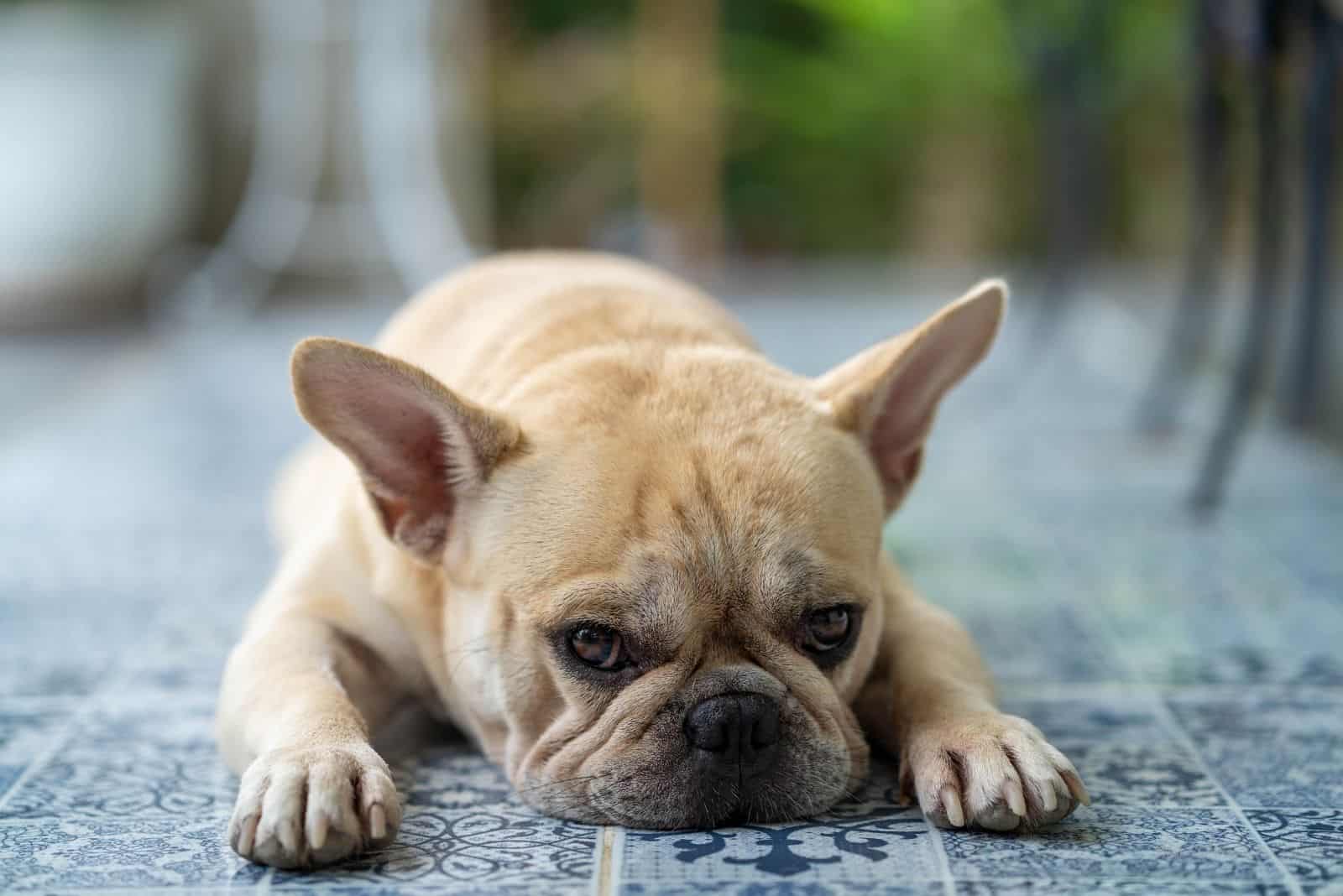
As I mentioned before, French Bulldogs are dogs with short hair. They’re super silky soft and sleek, and come in all sorts of Frenchie colors including blue, chocolate, sable, cream, piebald, etc.
But, not every French Bulldog fashions the same coat type.
No, I’m not thinking about curly or wavy coats. What I’m trying to say is that French Bulldogs can have either a single or a double coat.
Still, Frenchies with a double coat aren’t as fluffy as Samoyeds, for example.
Dogs with a single coat are more prone to climate-related health problems like pneumonia or asthma.
Those dogs aren’t suitable for living in cold climates. Also, they can’t live in tropical climates where the UV index is too high all year round; otherwise, they’ll suffer from sunburns.
Double-coated French Bulldogs aren’t good in hot climates either. They can’t tolerate extreme heat, and they aren’t capable of regulating their body temperature in terms of cooling down.
Ideal living conditions for French Bulldogs include a continental climate with warm summers and mild winters. If you live in such an area, the Frenchie is the pooch for you.
Do French Bulldogs Have A Lot Of Dander?
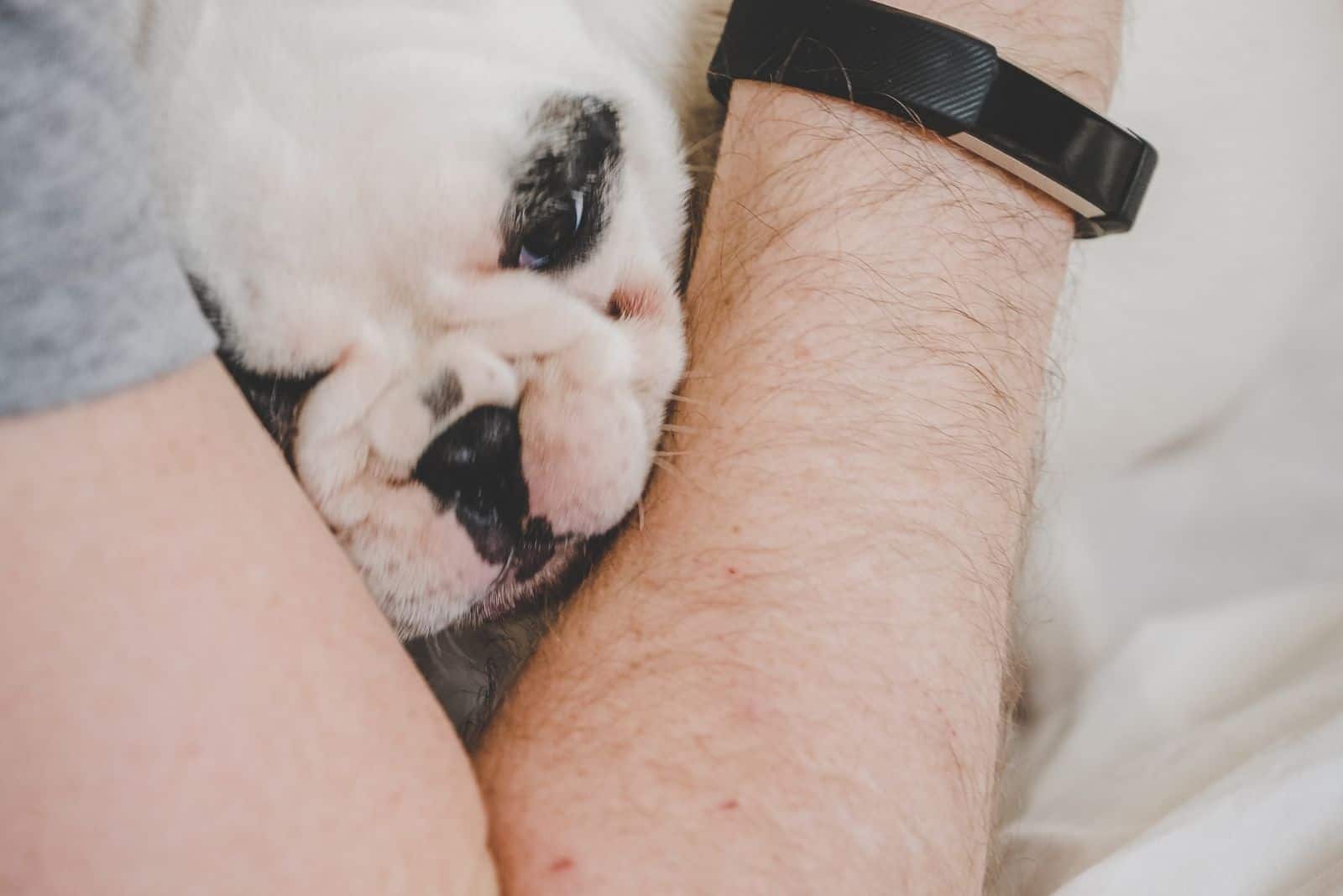
All dogs have dander. It’s not really about the amount of dander present with each dog. It’s more about how much it sheds.
You see, it’s not the dog hair that makes people allergic and look for a hypoallergenic dog. Dander and dog saliva are the biggest allergens. They’re the triggers that will cause sneezing, runny eyes, breathing problems, and other allergy symptoms.
Dogs that shed a lot spread saliva, dander, and sweat on their dog hair everywhere. This is why most people think it’s the dog hair that makes us allergic.
Not every dog breed has the same chemical components and proteins. So, even though one breed spreads dander, people won’t be that allergic since that dander is made differently.
Shedding and spreading dander is different with different coat types. Take a Husky or a Poodle, for example. They’re completely different dog breeds with contrasting coat textures. The Poodle is considered to be hypoallergenic, while the Husky isn’t.
Why is that so?
The Poodle has a curly coat with a soft undercoat. The undercoat doesn’t allow dead hair to drop around the house easily. Instead, the dead hair gets trapped underneath, and thus, makes this dog very suitable for allergy sufferers.
On the other hand, the Husky, with a dense double coat, sheds mostly off the top layer. Its hair is straight and coarse, meaning the undercoat won’t trap dander.
As for our French Bulldog, since they shed quite a lot, you can expect a lot of dander with those loose dog hairs. As simple as that.
Taking Care And Grooming Your French Bulldog
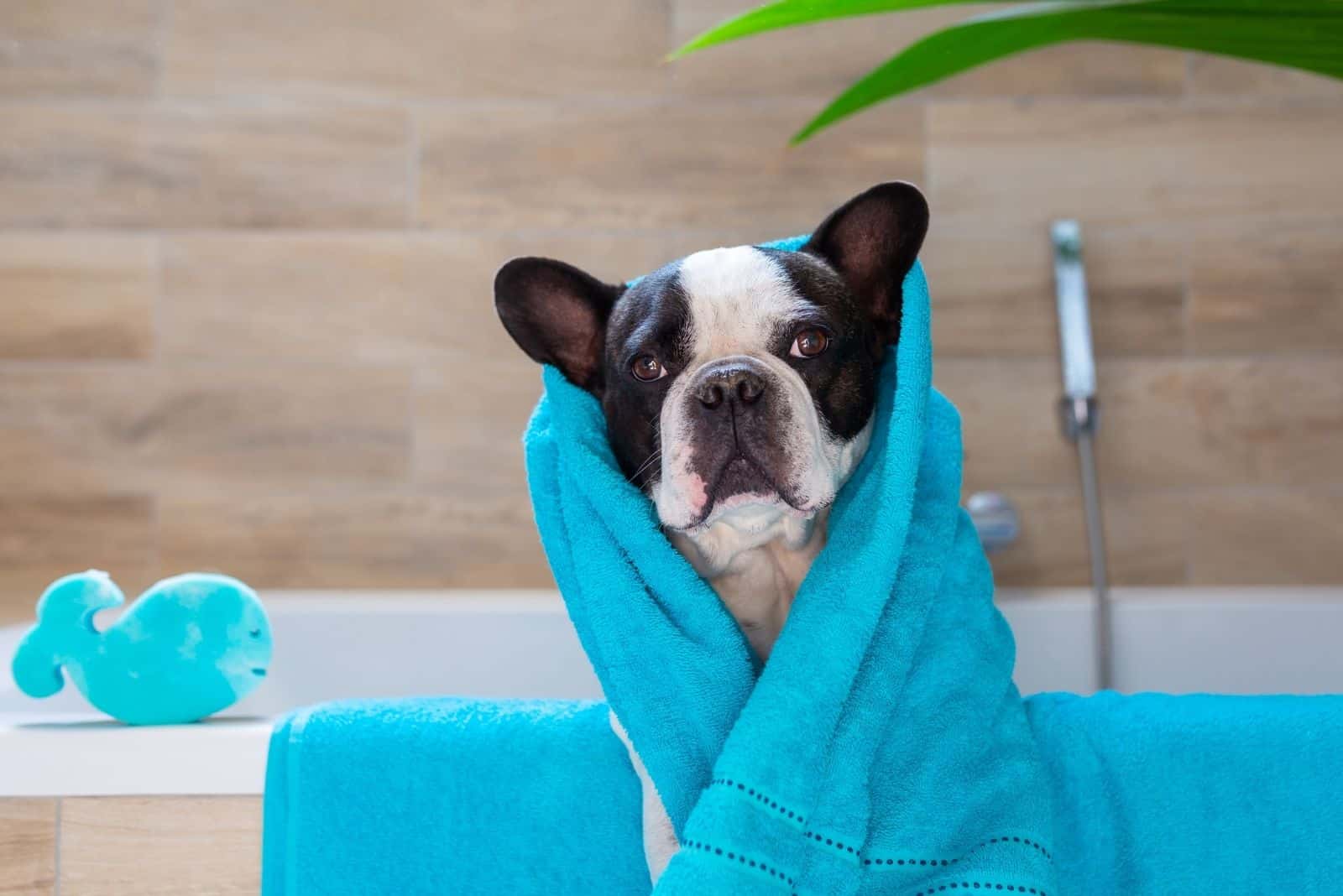
Even though they’re big shedders, French Bulldogs aren’t a menace to groom and take care of.
Every dog needs to be groomed regularly in order to prevent health issues with the dog’s skin, coat, and sensitive areas like the ears or the eyes. Sure, it’s not the same to groom a German Shepherd and a French Bulldog.
French Bulldogs need brushing only two to three times a week for collecting loose hair. Brushing will promote a nice and shiny coat that should shed controllably off the season.
French Bulldogs with long hair, or even fluffy Frenchies, need a tad more grooming. Naturally, they will shed more, so they’re really a red flag to avoid.
Regular grooming isn’t the only important thing you can do for your dog’s fur. Regular bathing is crucial, too. You must get a mild dog shampoo that won’t trigger your Frenchies sensitive skin.
Amazon and other pet-related shops have lots of great dog shampoos of a natural base.
To prevent further allergic reactions, you will also need to clean around the house, especially places like your bed or your dog’s bed. It’s always best to get a dog bed that’s washable, so you can get rid of the dead hair easily.
You wouldn’t believe how many allergens that a bed and linen contain!
DISCLAIMER: What I want you to understand is that no amount of grooming, brushing, or bathing will turn your French Bulldog into a hypoallergenic dog breed. That’s impossible. If you overdo those procedures, you’re risking even more problems with your dog’s skin and coat.
Your Frenchie will still trigger allergies, but this time, he’ll be in pain, too.
How Much Does It Cost To Maintain A French Bulldog?
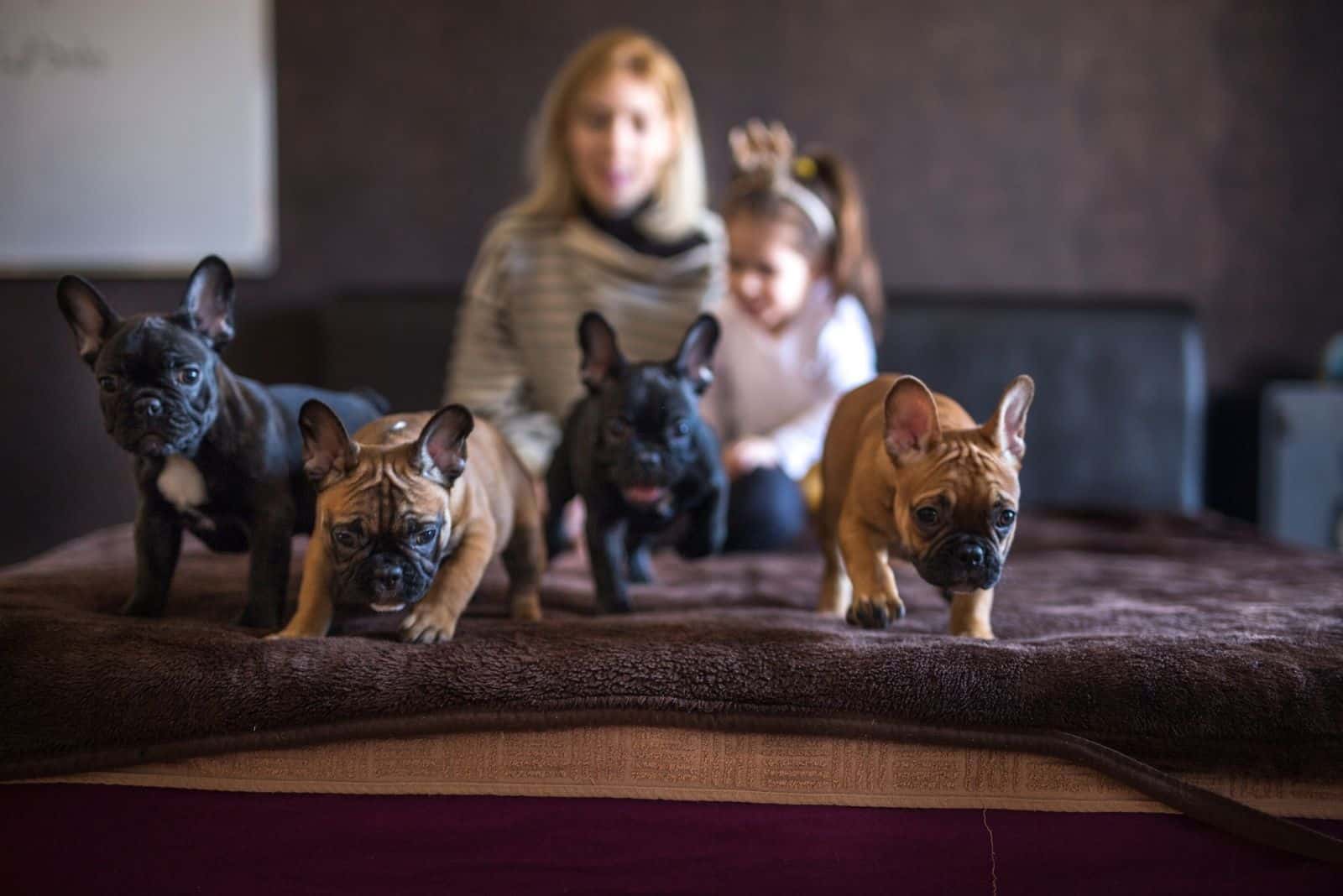
If I were you, I wouldn’t be scared of the expenses that come with maintaining a French Bulldog. Sure, you will have to pay a certain amount, and if you opt for a professional groomer, those bills will definitely be higher.
But, there are ways by which you can save a bunch of money if you learn how to take care of your Frenchie at home.
Investing in dog grooming equipment isn’t something you need to repeat each month. Just get good products in the first place, so you won’t have to replace them all the time.
For example, a good brush, dog shampoo, some cleaning solutions, and nail clippers shouldn’t cost you more than $50 to $100. That’s really not too much when you think about how long these things last.
How Do You Tell You’re Having An Allergic Reaction To Dogs?
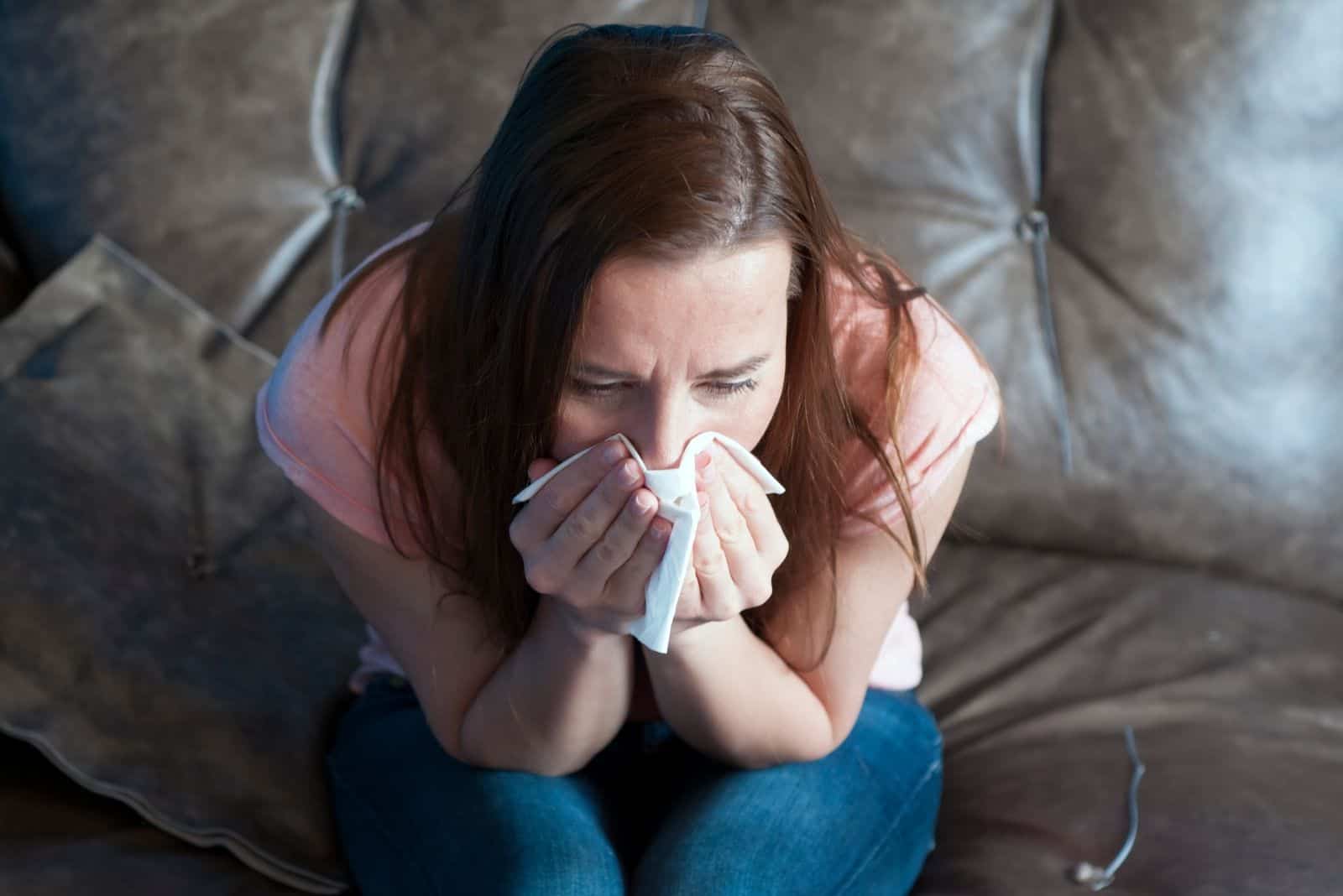
So, you’re a first-time dog owner? How exciting! I bet you couldn’t wait to start a new life with your new best friend. But, problems have occured.
One sneeze, then another one, and another one…
Oh, my, are you allergic to your dog?
Well, chances are that you’re really allergic to dogs.
Before reaching out for antihistamine, you should be able to tell the difference between an allergic reaction and a sudden cold.
Allergies are a reaction of our bodies when the immune system breaks down and starts letting allergens in.
Most allergy sufferers will experience the sneezing part first, followed by red and watery eyes that itch a lot. Symptoms will expand to nasal congestion and a runny nose, along with an itchy throat, mouth, and nose, and frequent coughing.
You may feel pressure on your face, and you may even experience blue circles around your eyes.
If not addressed, these symptoms can lead to further breathing complications like asthma, wheezing, shortness of breath, and pressure in the chest. You can feel like you’re suffocating.
These are symptoms that are triggered via direct contact or through air. Direct contact can also lead to skin reactions like eczema, rashes, itchy and flaky red skin, and hives.
You can solve these allergic reactions in two ways: you either get a hypoallergenic dog breed, or you get allergy meds and an air purifier with a hepa filter that will actually help you breathe.
Dog allergies can turn into severe allergies if not treated right, and if you’re constantly around dogs.
Are Hypoallergenic Dogs Really A Thing?
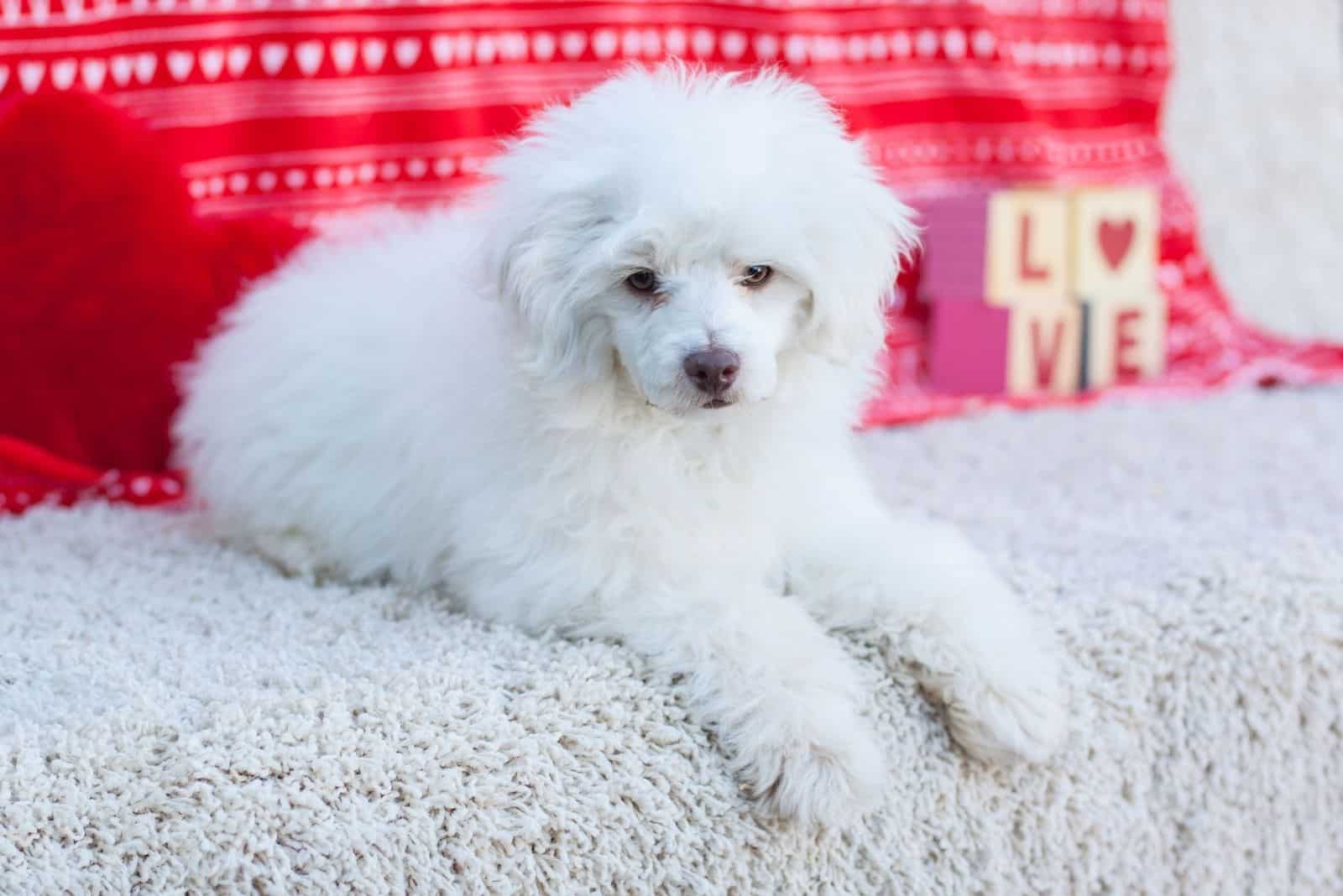
Well, they could be a thing, but hypoallergenic dogs aren’t real at all! Think of them as unicorns of the canine world.
No dog breed is completely hypoallergenic. The American Kennel Club supports this statement.
There are simply dog breeds with more hypoallergenic traits, and they’re some with less hypoallergenic traits.
Sadly, French Bulldogs are nowhere near the hypoallergenic status.
Dog experts and dog lovers are trying to sell some crossbreeds and purebreds as hypoallergenic dogs.
For example, they claim that Goldendoodles are hypoallergenic, and the more Goldendoodle generations they produce like the F2bb Goldendoodle, the more suitable for allergic people they’d be.
I wouldn’t care for dog breeders who list their puppies as 100% hypoallergenic. This proves to me that they have no idea what they’re doing, and they’re not really experts in the field.
It’s always better to avoid pet allergies from flaring up if you take allergy medications, and adopt breeds like the ones listed down below.
The Difference Between A Hypoallergenic Dog And A Non-Hypoallergenic Dog

For the sake of simpler reading, we’ll call the so-called hypoallergenic dog just… hypoallergenic.
So, what’s the difference between a hypoallergenic and a non-hypoallergenic dog?
You need to understand that hypoallergenic dogs shed just a little. Some of them don’t shed at all! This is quite convenient. On the other hand, non-hypoallergenic dogs are big shedders, with a big coat blown out twice a year.
Hypoallergenic dogs usually come in a single coat option. Those dogs have fur. But, some dog breeds have hair, i.e., the Yorkie, which is still hypoallergenic. Dogs with a dense undercoat are not hypoallergenic, and they will shed like crazy.
Dogs that won’t trigger your allergies also have less dander, while non-hypoallergenic ones produce and shed more pet dander.
Lastly, there’s a major difference in the field of producing saliva. Hypoallergenic breeds don’t have much saliva. But, the other dogs have lots of it, and they drool… A LOT.
The differences are pretty contrasting – not mild at all. You don’t need an expert to confirm that one dog breed is hypoallergenic (close to it), while the other one is definitely not.
That’s something your nose will tell you immediately upon meeting a new furry friend.
Which Other Dog Breeds Are Good For Allergic People?
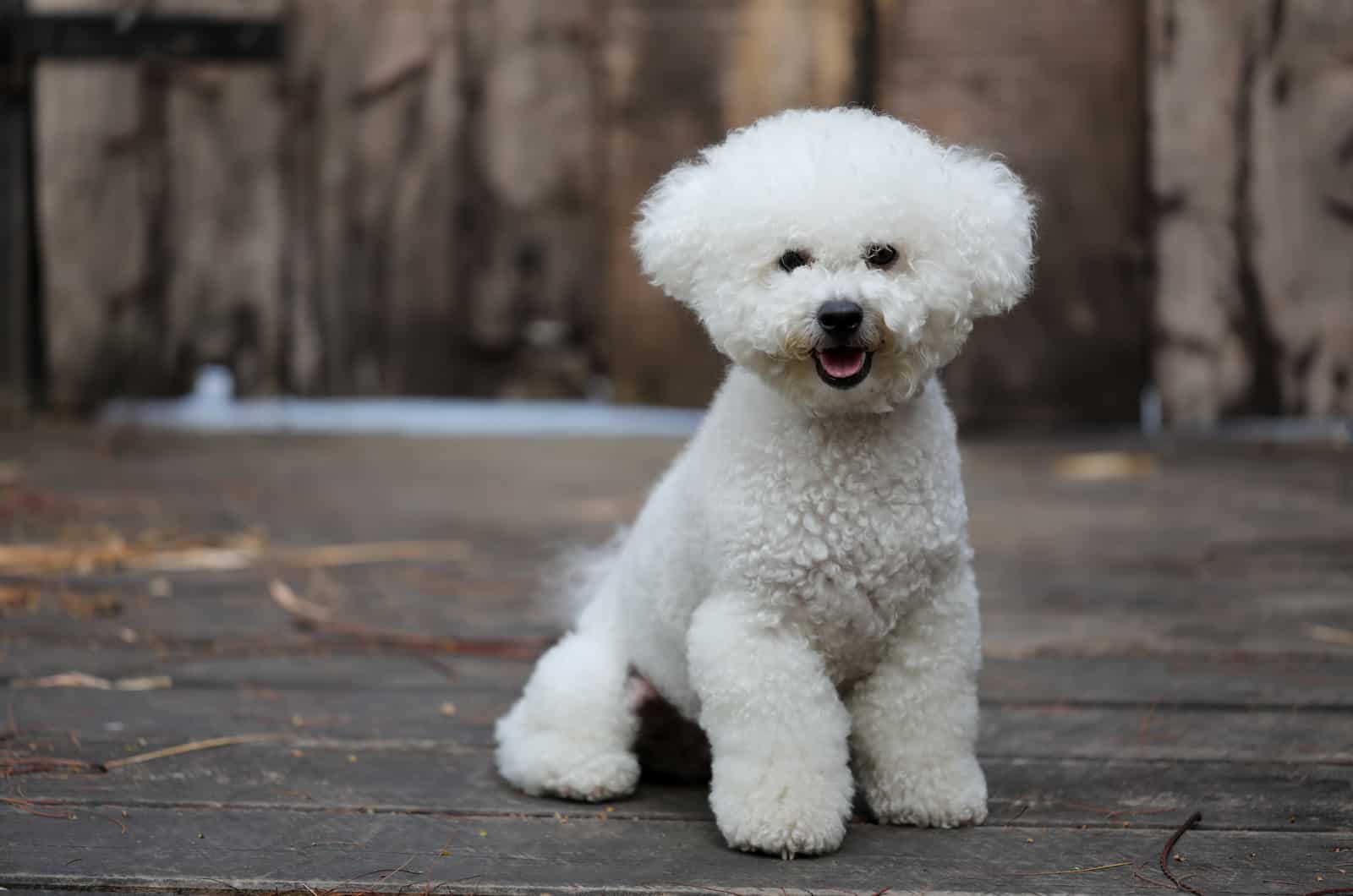
Dog lovers who are prone to allergic reactions will definitely want another dog breed that does not cause allergies.
French Bulldog puppies are truly adorable. But, no amount of cuteness will stop you from sneezing and feeling you’re about to suffocate.
Your new furry friend could also be another breed of dog such as:
A Maltese
An American Hairless Terrier
A Poodle
A Chinese Crested
A Spanish Water Dog
Now that you know which dog breeds are suitable for allergy sufferers, here’s a short list of which breeds to avoid, including our Frenchie:
French Bulldog
Pug
Pekingese
German Shepherd
Siberian Husky
Bulldog
Labrador Retriever
Doberman Pinscher
To Sum Up
So, what did we learn today? Are French Bulldogs hypoallergenic?
That’s right, they are not hypoallergenic.
Sadly, these dogs shed a lot despite their short coat. The chances of you getting the hives or sneezing like crazy are really high around these pooches.
To live with a Frenchie, you’ll either have to make some adjustments in the form of taking meds, or installing an air purifier. Or, you can get another dog breed that won’t cause allergic reactions.
I get that you like the French Bulldog. I like them, too! They’re sweet, funny, and loyal companions that love to shower you with attention. Who wouldn’t like them?
But, sometimes health does come first, and you will need to pick a dog that’s more hypoallergenic than a French Bulldog.
Read Next: 8 Best French Bulldog Breeders In Oregon: A Safe Buy


